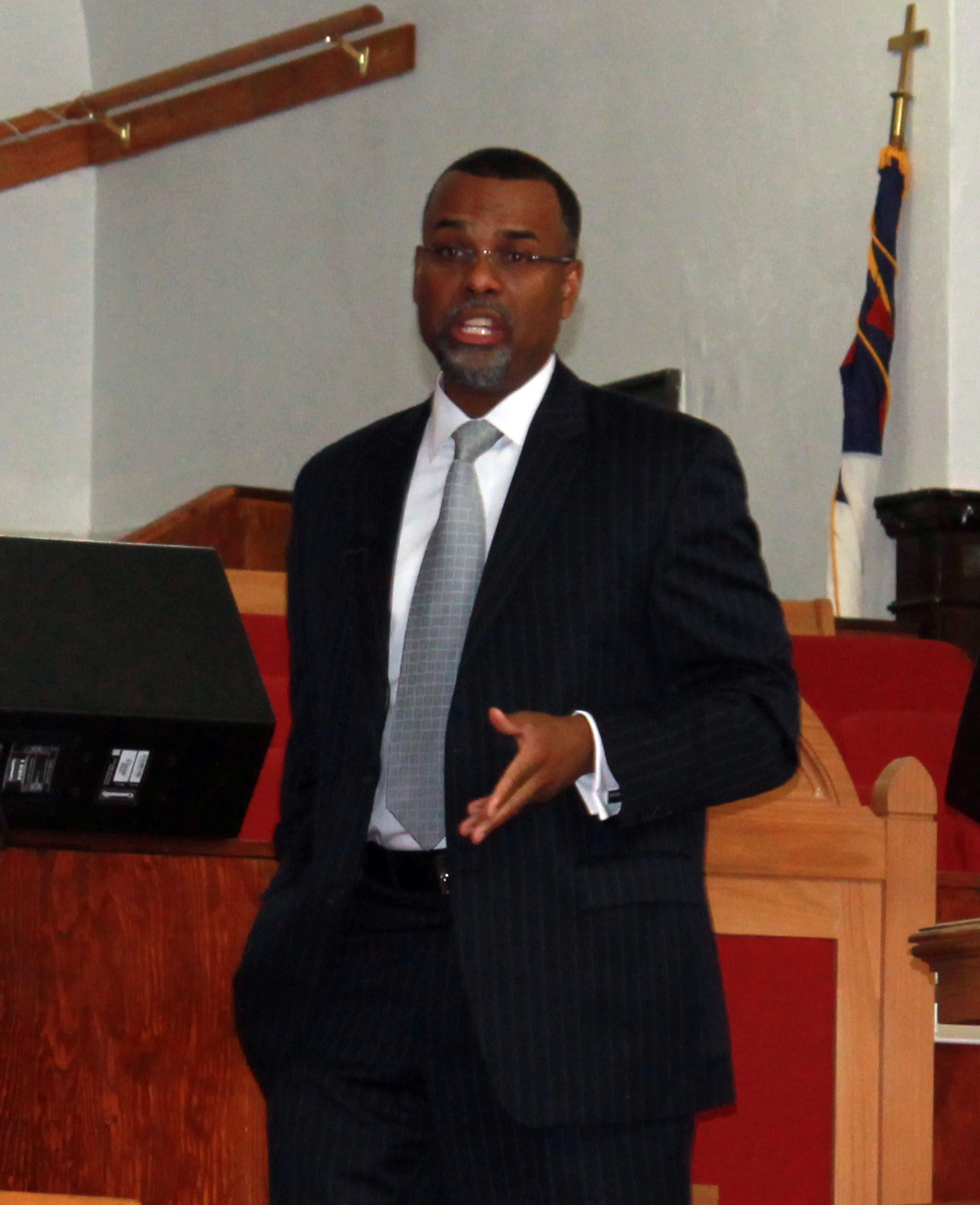This content is being reviewed in light of recent changes to federal guidance.
Eddie Glaude: Prophetic Witness and Black Leadership
 I was fortunate to witness two powerful and thought-provoking lectures given by Eddie Glaude Jr., the William S. Todd Professor of Religion and African-American Studies at Princeton University. The first lecture “The Crises of Black Leadership” was given on Thursday, September 20, 2012 and the second lecture “The Role of the Black Church in the age of Obama” was held in the community at Ninth Street Baptist Church.
I was fortunate to witness two powerful and thought-provoking lectures given by Eddie Glaude Jr., the William S. Todd Professor of Religion and African-American Studies at Princeton University. The first lecture “The Crises of Black Leadership” was given on Thursday, September 20, 2012 and the second lecture “The Role of the Black Church in the age of Obama” was held in the community at Ninth Street Baptist Church.
In Glaude’s first lecture, “The Crisis of Black Leadership”, he makes his case for what he calls “prophetic pragmatism”- a pragmatism rooted in the Deweyian (John) tradition of American pragmatism and dipped in the waters of what Amiri Baraka calls “Blues People”. It is this blues sensibility that Professor Glaude believes can give voice to the suffering of “the least of these,” and one that challenges the ways in which blacks think about themselves, imagine their history, and how they conceive of their own actions.
Summarizing most of his arguments from In A Shade of Blue: Pragmatism and the Politics of Black America, Glaude provokes, prods, and even pokes us to move from the custodial model of black leadership to a more democratic commitment to hearing “multiple voices”. Even as he critiques the idea of “hero worship”, Professor Glaude challenged us to seek out multiple narratives that tell a more complete and complicated story of black leadership in America– a narrative that disrupts the assumption of a politically united African-American citizenry.
Hero worship is the idea that those whom we have anointed as our heroes should be excessively praised for their deeds, and at the same time, protected from any serious and sustained critique. Black leadership has been troubled by our reluctance to speak truth to power even as we extend our support to those powers.
There is no contradiction between the two. A blues sensibility allows us to highlight the best qualities of figures such as Dr. Martin Luther King Jr., Malcolm X, Ella Baker, Fannie Lou Hamer, and Barack Obama,
even as we bear witness to their shortcomings. If we take our role as “agitators”, critics, and engaged citizens seriously, holding leadership accountable comes armed with a Socratic commitment to love and justice as we strive to not only do good, but to be good.
All too often, African-Americans, as Glaude notes, have eyes set on the successes of the past and have crowned those leaders as models for what black leadership should look and sound like in the 21st century. These moments of nostalgia fail to take into account the uniqueness of our present challenges and the promises that lie ahead.